2021: Action time for climate in the Oregon Legislature

![]() To stabilize the climate and avert catastrophic disruption, we must transition our economy away from fossil fuels—particularly our energy and transportation sectors—by mid-century. Shifting our grid in the Pacific Northwest to rely on 100% clean and efficient power is the core foundation to building a clean energy economy. And with very rapid progress in vehicle electrification and energy storage technologies, clean electricity can soon be a major part of the strategy for reducing transportation-related emissions.
To stabilize the climate and avert catastrophic disruption, we must transition our economy away from fossil fuels—particularly our energy and transportation sectors—by mid-century. Shifting our grid in the Pacific Northwest to rely on 100% clean and efficient power is the core foundation to building a clean energy economy. And with very rapid progress in vehicle electrification and energy storage technologies, clean electricity can soon be a major part of the strategy for reducing transportation-related emissions.
The great news is we are well on our way to a carbon-free electric power system. In 2019, Washington State enacted one of the strongest clean energy policies in the country, with utilities having to transition off coal power by 2025 and offer 100% clean and carbon-free electricity by 2045. With robust renewable energy and clean fuels standards and a commitment to end the use of coal already on the books, Oregon followed suit in 2021, matching the nation's strongest statewide timeline for adopting 100% fossil-free electricity by 2040.
The Northwest electric power system is already 71% carbon-free, making the region’s power supply as a whole less carbon-intensive than any other part of the U.S. The large base of existing hydropower both anchors the existing low-carbon system and, because it offers operational advantages over large thermal power plants, can serve as a relatively efficient platform for integrating renewable energy. The major carbon pollution sources on the grid are already approaching functional and economic obsolescence; many coal plants are scheduled for retirement already, and no new ones are being built.
The technologies to produce and use clean electric power, especially wind and solar energy, are relatively well-developed, diverse and commercialized now. As the energy system makes greater use of rapid advances in information and communication technology, more pathways emerge on both the demand and supply sides for meeting energy service needs.
While some bring up the need for "bridge fossil fuels" it's worth noting that while fossil methane is picking up some of the slack, it is with dubious climate benefits,[1] and there is little if any legitimate need for new investments in gas power plants or infrastructure. Existing capacity can serve any foreseeable temporary need to use gas for system balancing. A diverse array of flexible, low-cost strategies is emerging – including energy storage, efficiency, load management, smart grids, renewable energy diversity, and scheduling accuracy–to instantaneously balance electric power systems loads and resources.
Using energy wisely and renewable energy can save and deliver the kilowatt-hours we need. But we will also need to upgrade the “system” hardware and software to unlock their full potential. Grid modernization, smart grids, load management systems, storage solutions, and energy and transmission market reforms are vital and rapidly evolving parts of this “system upgrade.”
We expect that renewable electric resources will be the primary focus of any new electric generating capacity needed to achieve decarbonization.[2] It's essential to accelerate progress in financing, deploying, incentivizing, and integrating these technologies to get to a 100% clean grid.
Utilities and their regulators will need to evolve as well, developing financial and regulatory models that reward innovation, facilitate decarbonization to more distributed energy systems, protect consumers, and invest in communities historically impacted the most by pollution and lack of investment.
[1] Even low rates of methane leakage largely–or perhaps completely–balance out the advantage of gas over coal due to its lower CO2 production. But “better than coal” is not the appropriate test: even if leakage were not a problem, investment of long-term energy capital in new gas capacity is not consistent with the emission and investment trajectories necessary to meet climate stabilization imperatives. See: “Key factors for assessing climate benefits of natural gas versus coal electricity generation.”
[2] Nuclear power plays a very limited role in the existing NW system, with only one commercial generating station in the region. New nuclear capacity using existing, commercialized technology is not competitive, nor is it being contemplated. New nuclear technology platforms are in the experimental stages, as are many other renewable energy technologies. While further innovation is likely, our focus will be primarily on deployment and operationalization of technologies and systems that have a reasonably clear sightline to safe and affordable commercialization.

by Jonathan Lee on
Join our discussion exploring what powers our energy system today, where the trends are headed, and it all means for an energy-smart, climate-safe future for Oregon.
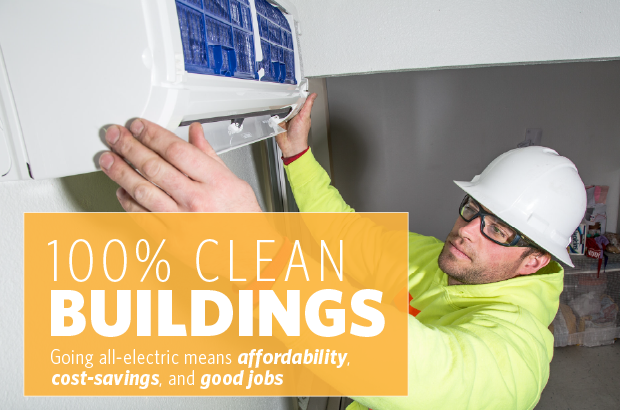
by Deepa Sivarajan on
So far our blog series on clean, all-electric buildings has shown how we can reduce our greenhouse gas emissions and improve our health and safety, but what about the economic impacts?

by Jonathan Lee on
Multnomah County voters recently approved $387 million in library construction bonds. Let's ensure this new building is 100% clean and fossil free.

by Gregg Small on
Our climate movement is more unified than ever, but we're reaching a critical point where we must change a lot of things all at once. Let's do this together.
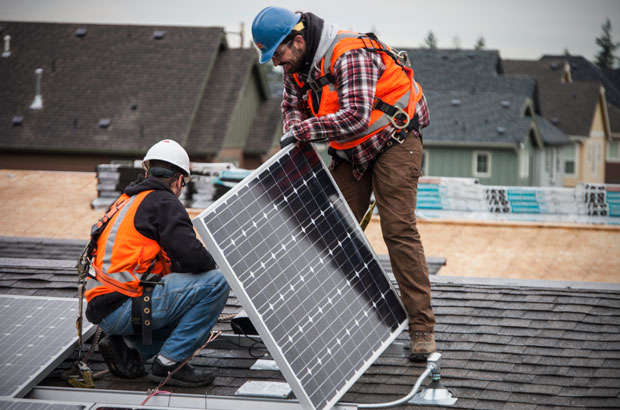
by Jonathan Lee on
Oregon legislators have proposed cutting the state’s only support for many rural and low-income communities to access solar and energy storage for their own roofs.
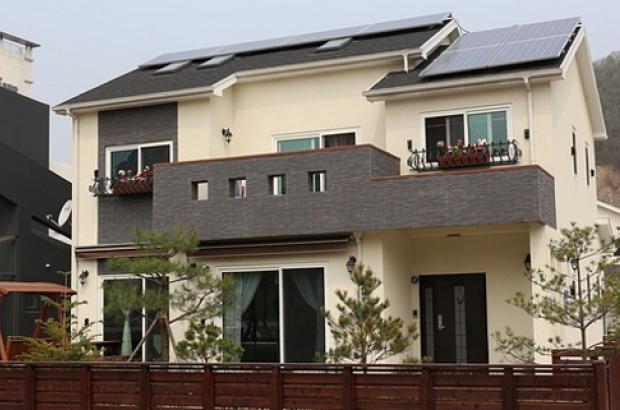
by Zach Baker on
We can rebuild and recover in a more just, clean, healthy, and smart way—while creating lots of high quality green jobs along the way. One of those climate-smart and equitable solutions to build back better than before is right in front of us, and all around us: our homes and other buildings.
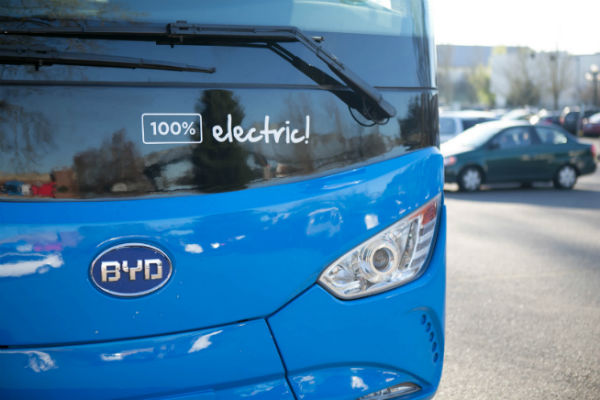
by Victoria Paykar on
Shifting to electric vehicles economy-wide is one of the fastest ways we can clean our air. However, we do not experience harmful air pollution equally, so we must ensure that communities facing disproportionate toxic air pollution are prioritized for transportation programs and infrastructure that improve air quality.

by Jonathan Lee on
A growing list of states and territories have adopted carbon pricing policies, enacted more robust low-carbon fuel standards, and committed to a timeline for transitioning to 100% clean electricity, but Oregon is not among them.
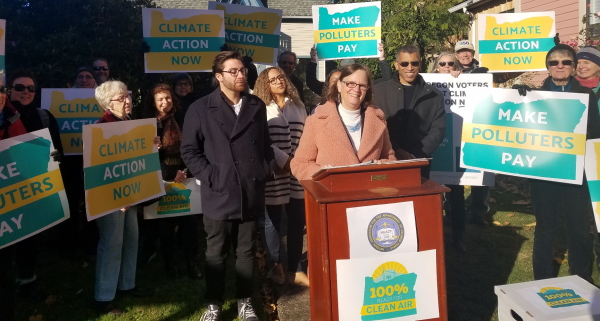
by Jonathan Lee on
Earlier this week, our coalition of partners officially filed critical climate protection ballot measures with the Oregon Secretary of State's office, having collected twice as many signatures as needed to qualify.
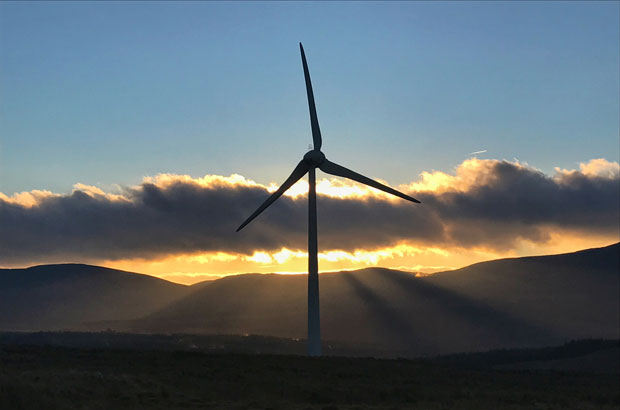
by Gregg Small on
President Trump’s EPA wants to nullify states’ ability to set their own standards on tailpipe pollution—an action that would impact not only California but all other states working to address global warming. How can our work make a difference when the federal government is trying to roll back progress that even Ronald Reagan defended decades ago, and that many automakers now want to keep on the books?
Join our email list to learn about what we do and how to get involved.